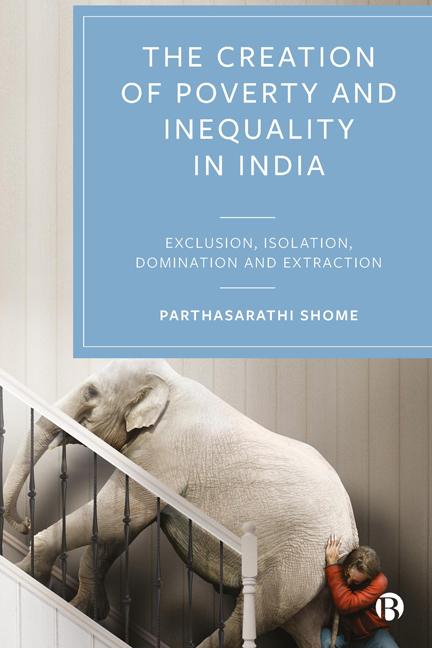Book contents
- Frontmatter
- Dedication
- Contents
- List of Figures and Tables
- Preface
- 1 Introduction
- Part I Macro-Economy and Human Development
- Part II Sources of Inequality and Poverty
- Part III Sectoral Effects
- Part IV Radical Humanism
- Appendix 2.1 Cash Use in India: A Cross-Country Comparison
- Appendix 2.2 Macro-Economic Comparisons: Selected Economies
- Appendix 4.1 Selected Country Tables
- Appendix 5.1 Evidence on Inequality in the US
- Appendix 8.1 Impact of Land Policy
- Appendix 11.1 Impact of Asset Transfer on the Poor
- Index
3 - Population, Poverty and Happiness
Published online by Cambridge University Press: 18 January 2024
- Frontmatter
- Dedication
- Contents
- List of Figures and Tables
- Preface
- 1 Introduction
- Part I Macro-Economy and Human Development
- Part II Sources of Inequality and Poverty
- Part III Sectoral Effects
- Part IV Radical Humanism
- Appendix 2.1 Cash Use in India: A Cross-Country Comparison
- Appendix 2.2 Macro-Economic Comparisons: Selected Economies
- Appendix 4.1 Selected Country Tables
- Appendix 5.1 Evidence on Inequality in the US
- Appendix 8.1 Impact of Land Policy
- Appendix 11.1 Impact of Asset Transfer on the Poor
- Index
Summary
Introduction
The primary motivation of this chapter is to draw attention to the deleterious ramifications of uncontrolled population growth on poverty and the happiness of a society. There was a short period in the 1960s during which the link between rapid population growth and famine and pestilence was pointed out by citing Malthus's (1798) early work, as well as of others. Recalling Bacaër (2011),
In 1798 Malthus published An Essay on the Principle of Population, in which he argued that the supply of food could not follow for a long period of time the natural tendency of human populations to grow exponentially. If the population remained relatively constant, this was because a great part of mankind was suffering from food shortage. Malthus saw the ‘principle of population’ as an argument against the writings of Godwin and Condorcet, which emphasized progress in human societies. Malthus’ essay influenced the theory of evolution of Darwin and Wallace and was criticized by Marx, but was put into practice with the Chinese one-child policy. (p 1)
Advancement of society and an economy was linked to the ability of a country to control population growth. Multilateral institutions strongly encouraged population control for developing countries. Following this policy route, China opted in favour of a one-child policy with severe consequences for those who failed to adhere to it. India too had a population policy encouraging a two to three children family but abandoned it later.
With global advancements in crop production, disease control, education levels, and rapid improvements in per-capita gross domestic product (GDP) often accompanied by enhancements in the economic standard of living, the earlier emphasis on the need for population control receded. Two factors seemed to play a part. First, economic advancements seemed to have imparted a sense of confidence to advanced and developing economies alike that a high rate of population growth could not only be managed but used for further advancements of individual economies. This was termed the ‘demographic dividend’. Second, there was a reappearance of a major influence of the declared Western religions to re-emphasize the abrogation of the use of population control methods across the globe and that influence appears to have come to stay
- Type
- Chapter
- Information
- The Creation of Poverty and Inequality in IndiaExclusion, Isolation, Domination and Extraction, pp. 53 - 74Publisher: Bristol University PressPrint publication year: 2023



